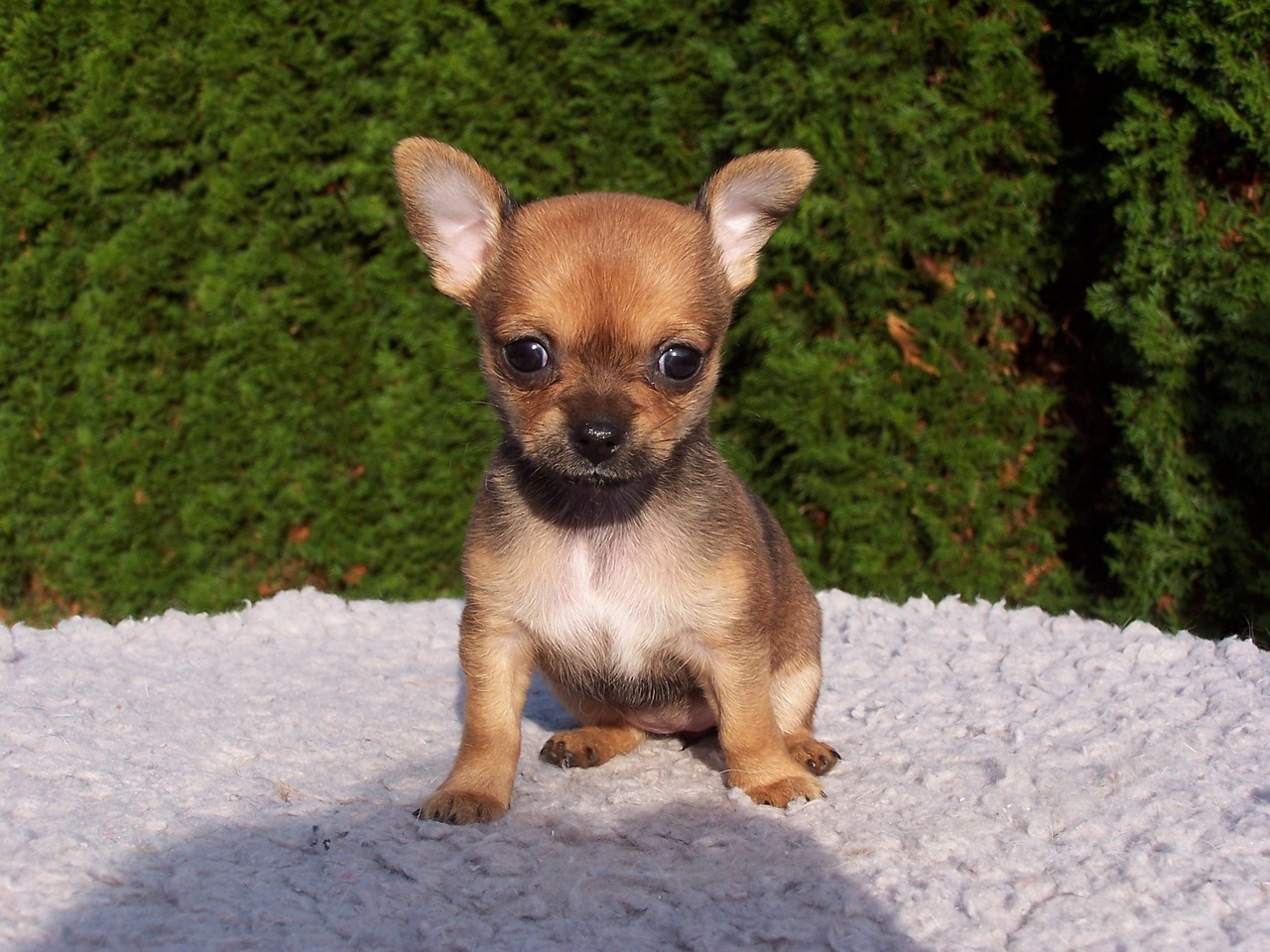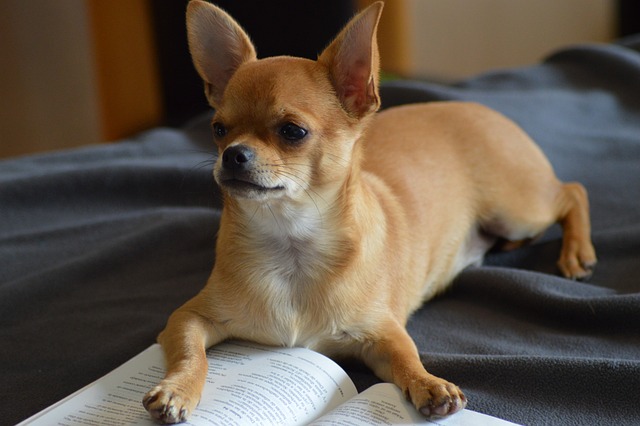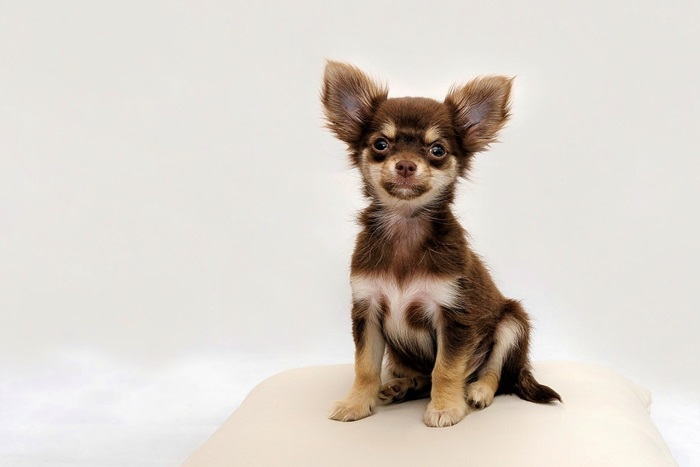
Despite its compact size, the Chihuahua is a breed bursting with personality and charm, offering an irresistible mix of intellect and energy. These petite canines are courageous and loyal, forming deep bonds with their families and making them an excellent addition to Filipino households. They become family members, providing companionship, entertainment, and unconditional love.
Chihuahuas radiate a spirit of bravery that belies their small size. Their lively antics and ability to offer loyal companionship elevate them beyond just being pets. Despite their petite build, their personality is grand. These spirited little dogs are excellent for Filipinos seeking an endearing, furry addition to their family.
In this detailed guide, you’ll gain insights into the cost of these petite canines and the factors influencing it. You’ll also explore the yearly expenses, how to identify an authentic breed, and where to find legitimate breeders. Additionally, we’ll discuss the pros and cons of owning these vibrant canines and introduce you to other breeds resembling the Chihuahua.
How Much Does a Chihuahua Cost in the Philippines?
If a small, spirited canine companion is what you’re after, the energetic Chihuahua often emerges as a favorite. For Filipino pet owners, curiosity about acquiring one of these adorable breeds and its associated costs is expected.
Looking at the cost of getting one of these energetic pets in our local markets in 2024, you’ll find that prices vary greatly. The cost of these spirited pups can fall anywhere between ₱10,000 to ₱20,000, influenced mainly by factors such as lineage, coat type, and color.
For instance, a long-coated brown male pup might be available for approximately ₱10,000, while a short-coated female counterpart could be slightly pricier at around ₱12,500. If you’re drawn to the petite T-cup variant, be prepared to set aside a budget close to the upper limit of this range.
Unique breeds like the rare Applehead variant often command higher prices. These imported purebreds might set you back by more than ₱15,000. The dog’s color also impacts its price. While brown or black Chihuahuas are common, dogs with unusual colors or patterns might have a steeper price tag.
Factors that Shape the Price
With their petite size and oversized personalities, these adorable canines have their prices influenced by many factors.
a. Bloodline
Firstly, the lineage plays a crucial role in determining the cost. The ones from champion lines or reputable breeders could fetch a higher price, reflecting the “blue blood” they carry.
b. Breeder Reputation
The reputation of the breeder is another significant factor. Trusted breeders prioritizing health and temperament over profit often charge more for their puppies, ensuring you bring a well-bred pup home.
c. Size
The size also plays a part. The tiny and teacup variants are often priced higher due to their unique, diminutive size.
d. Color
The color of the coat can also nudge the price upwards. Uncommon colors or patterns may command a higher value.
e. Location
Lastly, geographical location matters. They might be priced differently, reflecting local demand and availability.
In essence, the cost of a Chihuahua is shaped by various factors, each contributing to the final price. It’s a complex interplay of elements, underlining the importance of understanding these nuances when planning to welcome one of these charming pups into your home.

The Yearly Expenses
Navigating the financial aspects of owning a Chihuahua requires a comprehensive understanding of initial and recurring costs. Despite its petite size, this charming breed has a punchy price tag extending beyond the initial purchase.
1. Food
A Chihuahua’s diet is a significant monthly expense. High-quality dog food suitable for small breeds can cost around ₱1,500 per month and ₱18,000 per year.
2. Veterinary Care
Regular vet visits for vaccinations, deworming, and general check-ups are vital for your pup’s health. On average, expect to set aside about ₱10,000 yearly for these routine visits. Additionally, unforeseen health issues can lead to extra expenses.
3. Grooming
While they are low-maintenance in terms of grooming, regular baths, nail trims, and dental care, these are still essential. Professional grooming services might cost around ₱600 per session, translating to approximately ₱7,200 annually if done monthly.
4. Miscellaneous Costs
Like any other dog, they need toys for stimulation and accessories like leashes, collars, and beds. An estimated ₱5,000 per year should cover these needs.
Total Yearly Expenses
The annual cost of Chihuahua ownership is approximately ₱40,000. It’s a continuous investment, ensuring the health and happiness of your adorable companion.
First Year Expenses
| Expense | Cost |
| Chihuahua’s Price | ₱10,000 to ₱20,000 |
| Food | ₱18,000 |
| Veterinary Care | ₱10,000 |
| Grooming | ₱7,200 |
| Miscellaneous Costs | ₱5,000 |
| TOTAL | ₱50,200 to ₱60,200 |
A detailed understanding of these costs is crucial in providing the best possible care for your pet, ensuring they remain a cherished part of your family for years.
The Undeniable Traits of an Authentic Chihuahua
Specific and unmistakable physical characteristics set this breed apart when searching for a true-blue Chihuahua. Here’s a list to guide you in identifying a purebred:
- Size: One of the smallest dog breeds, Chihuahuas typically weigh between 2 and 6 pounds and stand about 5 to 8 inches tall at the shoulder.
- Head Shape: They can have an ‘apple dome’ head (rounded skull) or a ‘deer’ head (slightly elongated skull and snout).
- Ears: Their ears are large and stand erect when alert, often more prominent in proportion to their tiny bodies.
- Eyes: Their eyes are large, round, and expressive, usually dark, but can also match the coat color.
- Coat: These dogs come in two varieties – smooth and long coats. The smooth coat is short and close-fitting, while the long coat is soft, flat, or slightly curly, forming a fringe on the ears and tail.
- Tail: The tail is moderately long, carried up or over the back, with a loop at the tip.
- Color: They can sport any color or mix of colors, from solid black to white, spotted, or a blend of hues.
Paying close attention to these distinct traits, you’ll be well-equipped to identify an authentic Chihuahua, bringing you one step closer to finding your perfect canine companion.
Essential Questions to Ask Your Breeder
Buying a Chihuahua is more than a simple transaction. It’s about ensuring the health and authenticity of your future pet. To help you, here’s a list of crucial inquiries:
1. Can I meet the parents?
Observing the parent dogs can glimpse your potential puppy’s future demeanor and size. The parents should be alert, friendly, and not exceed 6 pounds.
2. May I see your dogs’ health certificates?
Trustworthy breeders will readily present health certifications, including ones for genetic conditions common in this petite breed, such as cardiac issues and Patellar Luxation.
3. How many litters do you breed yearly?
A breeder prioritizing quality over quantity will have fewer litters per year. A high number may suggest a focus on profit.
4. Are the puppies socialized?
This breed can be naturally shy. Early socialization ensures they mature into well-adjusted adults.
5. Can I see and handle the entire litter?
Viewing the whole litter allows assessment of varying temperaments and sizes. You can also observe how the puppies interact with their environment and each other.
6. Are the puppies registered with PCCI?
In the Philippines, registration with the Philippine Canine Club Inc. (PCCI) signifies a purebred dog. The breeder should provide a legitimate registration certificate.
7. What support do you offer post-adoption?
Reliable breeders provide continuous advice and support, demonstrating their commitment to the lifelong welfare of their dogs.
8. What is your experience with this breed?
To ensure the breeder’s expertise, ask about their specific experience with this breed. This can reassure you that they can breed healthy, temperamentally balanced puppies.
Armed with these questions, you are now prepared to find your perfect petite companion from a responsible breeder. Remember, this isn’t just about acquiring a pet—it’s about welcoming a new member into your family.

Pros and Cons of Welcoming a Chihuahua into Your Home
In the bustling archipelago known for its tropical climate and warm hospitality, owning a small dog breed brings unique experiences. This is especially true for the spirited Chihuahua, a tiny companion with a heart as big as the Pacific.
Upsides
1. Adaptability to Urban Living: Given their compact size, these little friends are perfect for city dwellers living in apartments or condos, where space is often limited.
2. Undying Loyalty: Known for their unwavering loyalty, they form strong bonds with their owners, making them excellent companions who will stand by your side – rain or shine.
3. Low Maintenance Exercise Requirements: Unlike larger breeds, they don’t require as much exercise. A few short walks or a little playtime within your home’s four walls is enough to keep them happy and healthy.
4. Long Lifespan: These small canines are known for longevity, often living well into their teens, ensuring many years of companionship.
Challenges
1. Sensitivity to Climate: The tropical weather of the Philippines can be challenging for this breed. They’re prone to overheating; extra care must be taken to keep them cool and hydrated.
2. Potential Health Issues: They’re susceptible to certain health issues like dental problems and heart disease. Regular vet visits and preventive care are essential.
3. Stubborn Streak: They have a reputation for being stubborn, which might pose some challenges in training. Patience and consistency are vital in overcoming this hurdle.
4. Fragility: Due to their small size, they’re more fragile compared to other breeds. Extra caution is needed, especially around larger animals and when handling them.
Owning a small dog breed in the heart of Southeast Asia presents an exciting mix of joys and challenges. From their adaptability to urban living and unwavering loyalty to the need for climate-sensitive care and the occasional display of stubbornness – it’s a unique journey that requires dedication and love. But at the end of the day, the wagging tail and the unconditional love you’ll receive are worth every effort.
Five Breeds Similar to Chihuahuas
In the world of small dogs, a particular breed stands out for its big personality – the Chihuahua. This pint-sized pooch makes an excellent companion, but it’s not the only breed that can steal your heart. Here are five breeds with similar qualities you might also love.
I. Yorkshire Terrier
These canines are distinguished by their vibrant personalities and lavish fur, mirroring the characteristics that make Chihuahuas so beloved. To explore these luxurious-coated companions further, read this detailed Yorkshire Terrier price guide.
II. Maltese
With their gentle nature and elegant appearance, Maltese dogs make lovely pets. They share our favorite tiny dog’s affectionate demeanor, making them perfect for those seeking an adoring companion. Learn more about the Maltese Philippine price range here.
III. Pomeranian
These fluffy bundles of joy are as energetic as they are adorable. Their lively spirit matches a Chihuahua’s, making them a delightful addition to any home. Get to know more about them before buying a Pomeranian in the Philippines.
IV. Toy Poodle
Intelligent and sociable, Toy Poodles are excellent family pets. They possess a playful energy reminiscent of the Chihuahua’s spirited nature.
V. Papillon
Known for their distinctive butterfly-like ears, Papillons are friendly and alert. Their charming disposition resembles a Chihuahua’s, making them a great alternative.
Choosing a pet is a deeply personal decision. Whether you’re set on a Chihuahua or considering other breeds, remember that each dog is unique with its quirks and charms. Whichever breed you choose, prepare for a lifetime of love and companionship.






